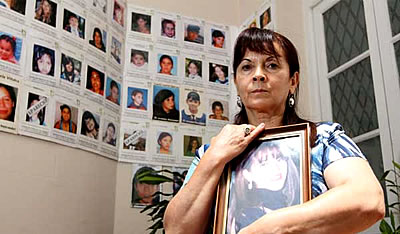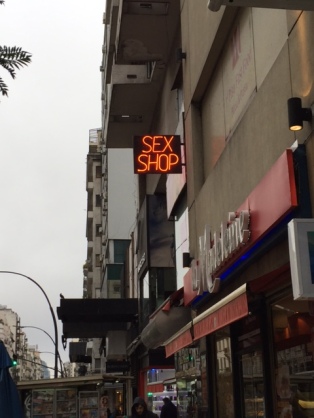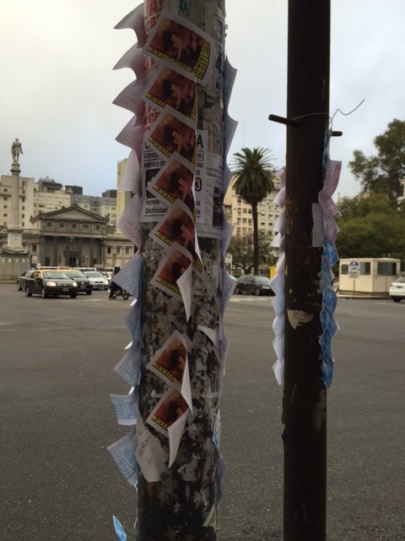I’ve now been in Ecuador for over a week! A great deal has happened for my research since my last post, so I’m gonna split it into a couple posts.
In Buenos Aires, I successfully managed to interview 42 sex workers on their personal experiences in prostitution. Most of my interviewees were cisgender women, but 4 were cisgender men and 3 were transgender women. The majority I found in the microcentro, the area where I was living, either by the original restaurant that my AirBnB host showed me, in another restaurant that allows them to sit inside, or on the street. However, 5 of my participants I found in Recoleta, Buenos Aires’ most upscale neighborhood, and 10 in Once, a more economically disadvantaged neighborhood known for having many migrants. 4 participants were Paraguayan, 2 Uruguayan, 2 Brazilian, 2 Dominican, 1 was of Peruvian origin but grew up in Buenos Aires, and the rest were Argentine. They ranged between 20 and 60 years old, with the average age being 33.2 (excluding 3 participants whose age I didn’t get).

My sample, though diverse, is not representative of all sex workers in Buenos Aires. My participants identified multiple areas of the city known for prostitution. The microcentro and Recoleta are of the highest economic level. Once (a.k.a. Balvanera) and Flores are of a lower economic level, followed by Constitución. The parks of Palermo have been recognized as a zone of tolerance for transgender sex workers, and many male sex workers, called taxiboys, concentrate at the intersection of Santa Fe and Pueyrredón. The relative safety of these areas limited my ability to interview the most economically disadvantaged workers; I could easily walk around in the center and Recoleta on my own, but I was warned not to go to Constitución even during the day. I was able to conduct interviews in Once because an organization I interviewed, the Argentine Women’s Association for Human Rights (Asociación de Mujeres Argentinas por los Derechos Humanos, AMADH), introduced me to a sex worker there, who then introduced me to others. The experiences of sex workers in the wealthier neighborhoods are likely much more positive than those in poorer areas. Furthermore, I didn’t speak with any sex workers working in privados – private apartments that typically have an owner or madam who takes 50% of workers’ earnings – though several of my participants had worked in privados in the past, nor did I interview anyone working through online advertising.

However, I do feel like I got a very good idea through my interviews of the conditions of sex work in the city of Buenos Aires, and to a limited extent of the rest of the country. With the exception of one woman, all my participants did sex work for economic necessity, and most were mothers trying to support their children. Most had only one or no bad experiences with clients in terms of violence or coercion. Nevertheless, all but two of them wanted to leave sex work and find another job. They emphasized to me that while they didn’t want to be in sex work, they couldn’t find other jobs that paid them enough to live off of. Doing sex work allowed many of them to survive, to buy a house or a car, and to put their children through school. Most, though not all, wanted the government to legalize sex work and recognize it as a job so they could pay taxes and receive retirement and other benefits just like any other worker.
One woman, whom I’ll refer to as Marina, told me a story that particularly touched me. She works to support three children and several family members. Her children know that she does sex work, she said, but “they don’t say anything because they know that with this they go to high school, they have clothes, they eat.” Once, her daughter really wanted a cell phone for her birthday, and she didn’t have enough money to get it for her, so the night before, she went out to work. She was lucky to get a client who hired her for the night, and when he paid her, he gave her 7000 or 8000 pesos (between $500 and $600, though with the exchange rate it was likely more at the time), much more than she had expected. When she left with the money, she told me, she started crying. She went out and bought her daughter the phone, and when she came home and her daughter saw her crying and asked what happened, Marina told her she was so sorry but she had been robbed and didn’t have any money to give her something for her birthday. Her daughter told her that it was ok, sat her down and made her a mate to drink. When her daughter went to hug her, Marina held the cell phone behind her back and pushed it into her daughter’s hand.
I have collected so many stories now that I don’t know what to do with them. Some of my participants gave me short answers and I had to probe them with many questions, while others I barely asked a single question and they told me their life stories. There are too many experiences for me to share them all here.

When I asked them what they thought would improve their conditions, many of my participants told me they wanted a space to work. Since revising the anti-trafficking law in 2012, the Argentine government has begun shutting down many indoor places where prostitution is exercised. In Buenos Aires, they’ve closed many boliches (clubs or bars) where sex workers used to operate, some of which charged the sex workers a percentage of their earnings but others which only required them to purchase a drink or pay an entrance fee. Only those that pay bribes, explained multiple participants, remain open. While the closing of these places may be intended to stop exploitation, my interviewees said that the boliches that were closed in the center of Buenos Aires and in Recoleta did not have trafficking, and that the locations’ closing left them out on the street, where they face more danger. The restaurant that I visited my first night, where I conducted many of my interviews, used to let the women sit inside to wait for clients. However, a few months ago, one woman told me, a girl came with a hidden camera to expose that there was prostitution happening at the bar. Since then, the bar has not allowed the women to sit inside; according to another woman, the owner said they would otherwise have problems with the police. Many of the women there told me the restaurant’s decision to no longer let them sit inside was really damaging to them, because they now had to stand outside in the cold for many hours to wait for clients. Additionally, some women said they could not charge as much money working in the street, because clients viewed them as more desperate.
This seems to me like a clear example of anti-trafficking efforts gone wrong. While those who’ve gone in to shut down the bars likely have good intentions, they’ve in fact caused more harm to the women they’re trying to help. They certainly should be working to address trafficking, which is a real problem. Most of my participants said they had never seen a case of trafficking, and that they believed the trafficking that existed happened in the provinces and not in the city of Buenos Aires. However, a couple had seen trafficking cases. One Uruguayan woman, whom I’ll call Sandra, told me when she first came to Buenos Aires, she worked in a privado. “I had to leave in a hurry,” she said, “because I saw las chicas secuestradas [the kidnapped girls].” There were girls there, from Peru, Chile, and other countries, who had been told they would be given jobs as maids in Argentina, but when they arrived they weren’t allowed to leave the apartment. They were brought all their food inside, and they couldn’t have cell phones or anything. She left, and reported the place to the police.
How, then, can the government work to address trafficking without harming those who have not been coerced and rely on sex work to support themselves? That’s to me the most difficult question. Some of my participants suggested that the government do more surveys of sex workers to see who is in it voluntarily and who is being forced. Others wanted the government to regulate sex work and have each sex worker be registered and submitted to regular health checks. That model seems promising to me, but there are flaws; for instance, some sex workers may not want to register for fear of their families finding out. As I hear many different perspectives, I will continue to grapple with what policies might best address this issue.
In my next post I’ll discuss visiting with two sex workers’ organizations that started as the same organization but then split apart due to different ideological positions on prostitution, AMMAR and AMADH.





 or now, but I looked up his name and he is who he says he is), and he told us he enjoyed coming to the restaurant and observing the exchanges between the sex workers and the men, and disclosed that he had purchased sex from workers there before. When I told him about my research and asked if he’d be willing to be interviewed, he agreed, and said he would do so on the record.
or now, but I looked up his name and he is who he says he is), and he told us he enjoyed coming to the restaurant and observing the exchanges between the sex workers and the men, and disclosed that he had purchased sex from workers there before. When I told him about my research and asked if he’d be willing to be interviewed, he agreed, and said he would do so on the record.